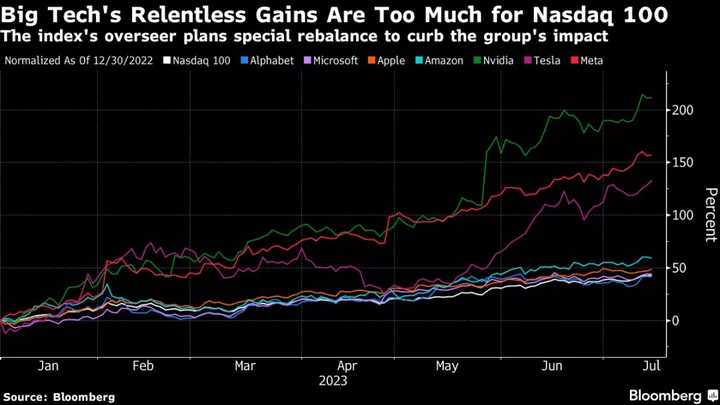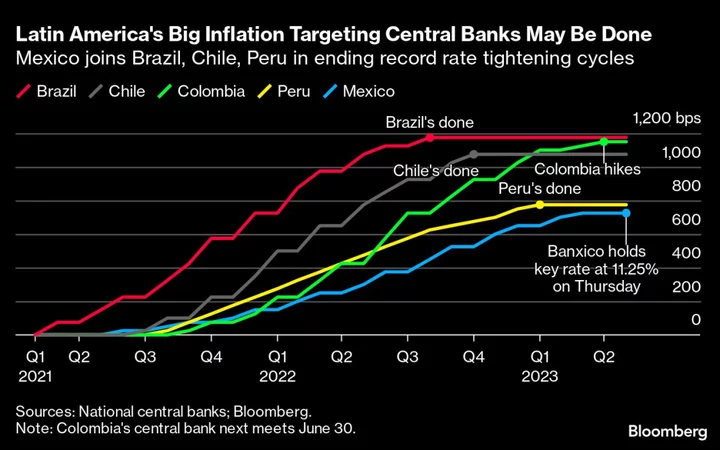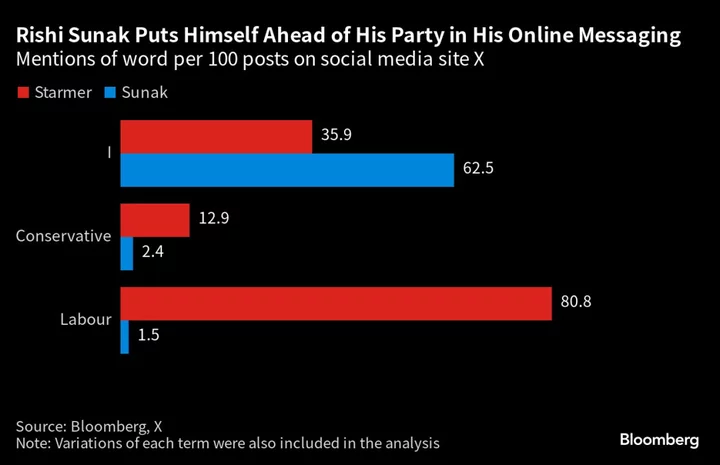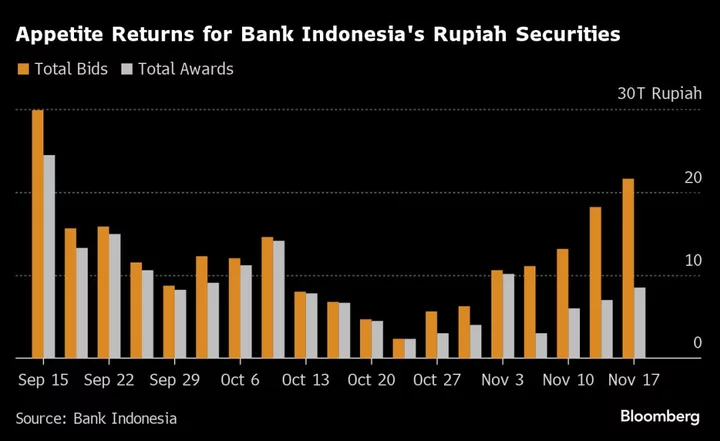When a “special rebalance” of the Nasdaq 100 Index was touched off to curb the dominance of the biggest technology stocks, Meta Platforms Inc. was the only megacap to fall below a crucial threshold for downsizing. Now it seems the social media giant will be pared back anyway.
Meta’s representation in the index is flirting with 4.5%, the key level that six other companies breached when the out-of-cycle adjustment to the gauge was triggered on July 3. That means if the weights of those larger stocks were cut and redistributed to other index members, the Mark Zuckerberg-founded firm would be catapulted to the sort of size that the rebalance was intended to combat in the first place.
Instead, Meta will also have its weight revised.
Nasdaq on Friday released to clients the pro forma data revealing the adjustments index members will receive in the revamp. They show the company formerly known as Facebook will get a downward revision alongside Apple Inc., Microsoft Corp., Alphabet Inc., Nvidia Corp., Amazon.com Inc., and Tesla Inc.
The details have been the subject of frenzied speculation among investors and market watchers, because money managers with hundreds of billions benchmarked to the index will need to buy and sell en masse to mimic the changes. And while the rebalance methodology is public, it’s subject to various interpretations and has become a source of confusion.
At Wells Fargo & Co., the team originally forecast Meta’s weight would be reduced. They later withdrew that view, before ultimately finding out their initial take was correct.
“Meta was a little tricky. Initially the team thought it would be capped and then backed off that view,” said Chris Harvey, head of equity strategy at the bank. “It makes more intuitive sense this way” since if it’s not downsized, it would compromise the whole aim of addressing overconcentration, he said.
Predicting the actual new weights of the megacaps remains a tricky business, since their market value will change day-to-day until the rebalance takes effect next Monday. Using July 3 as the reference date for the planned adjustment, the seven biggest constituents would see their combined representation drop to 43.7% from 54.6%, according to a Nasdaq spokesperson.
Microsoft and Nvidia are expected to experience the largest reductions, each falling about 3 percentage points to 9.8% and 4.3%, accordingly. Apple will reclaim the top spot, with a relatively small decrease of 0.6 percentage point to 11.5%.
The trimmed weights from the Big Seven will be spread out to the rest of the index, with Broadcom Inc., PepsiCo Inc. and Costco Wholesale Corp. benefiting the most.
The special rebalance is intended to prevent fund managers linked or benchmarked to the Nasdaq 100 from violating a regulatory diversification rule. To stay in compliance with the restriction, a paper on the Nasdaq website says weights can be pared back if the combined influence of the largest companies — those making up 4.5% or more of the gauge — adds up to more than 48%. A rebalancing may be enacted to reduce the group’s influence to 40%.
This rebalance is a consequence of Big Tech’s relentless rally that has accounted for almost all the broad market gains this year. The top-heavy nature of the return dynamic has made it hard for money managers to beat benchmarks like the S&P 500 and Russell 1000. Less than a third of large-cap funds tracked by Goldman Sachs Group Inc. are outperforming year-to-date.
“The outperformance of the largest stocks and their increased weights in benchmark indices have driven persistent mutual fund underweight in those stocks, which in turn have created large headwinds to funds’ relative returns,” Goldman strategists led by David Kostin wrote in a note. “The NDX special rebalance is unlikely to solve the challenge that elevated current market concentration poses for many benchmarked investors.”









